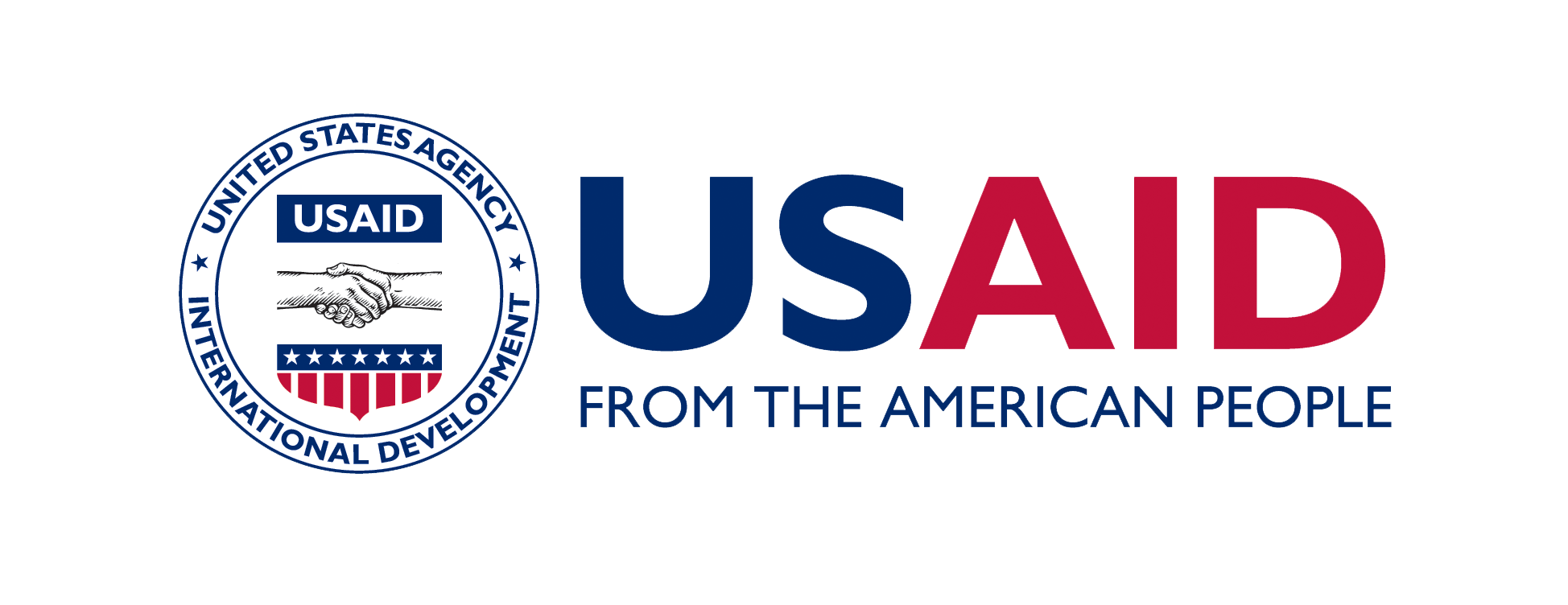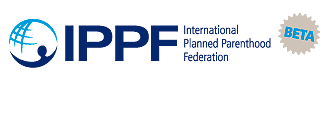OPENING CEREMONY
“Making a Difference through Sustained Political Commitment”
Political leaders have the ability to serve as powerful, visible advocates for national and global family planning. Family planning cuts across many critical issues: human rights, women’s rights and empowerment, sustainable development, environment, poverty and equity. When political leaders support family planning, they have the power to impact all of these issues while also transforming public opinion and shifting social norms. Political leadership and support at the international, national and community level is critical to the success of family planning programs. Following a welcome to the conference and an introduction to Ethiopia, this plenary featured international political leaders who highlighted the importance and impact of sustained political commitment on family planning.
Click on the photo or name of each speaker to hear her/his address.
His Excellency Hailemariam Desalegn
Prime Minister of the Federal Democratic Republic of Ethiopia
H.E. Mr. Hailemariam Desalegn was born on 19 July 1965. He has a master’s degree in Engineering and in Organizational Leadership, and taught for 12 years at the Arba Minch Institute of Technology, where he also served as Registrar, Vice-Dean, and Dean. A dedicated civil servant, H.E. Hailemariam Desalegn has held political positions at the regional and federal level, including Deputy Prime Minister and Minister of Foreign Affairs. H.E Hailemariam Desalegn is married and a father of three.
Her Excellency Joyce Banda (video message)
President of the Republic of Malawi
Her Excellency, Mrs. Joyce Hilda Banda is the President of the Republic of Malawi. She took her oath of office on 7 April, 2012. She is Malawi’s first female President and Africa’s Second Female Head of State. She holds a Bachelor of Social Studies in Gender Studies from the Atlantic International University, USA and a Diploma in Management of NGOs from the International Labour Organization (ILO) Centre in Turch, Italy. Currently, she is completing a Master of Arts Degree in Leadership at Royal Roads University in Canada.
Her Excellency Yingluck Shinawatra (video message)
Prime Minister of the Kingdom of Thailand
Yingluck Shinawatra is Thailand’s first female Prime Minister. Promoting the welfare of women and children is one of her national priorities. The Thai Women Development Fund, one of her many initiatives, will provide 100 million baht (US $3.3 million) to 77 provinces with the objective of supporting women’s participation in the national development process, ensuring the protection of women’s rights, improving legislation in addressing domestic violence, and improving accessibility to education, funds and healthcare for women.
Her Excellency Dr. Nkosazana Dlamini-Zuma
Chairperson of the African Union Commission
Dr. Dlamini-Zuma is a lady of noble character and a visionary leader. She possesses an incredible passion for the African continent and its developmental ambitions, and she is a champion of the renewal of Africa. Working as part of the then Organisation for the African Unity (OAU) collective, she participated in a number of OAU delegations as a midwife to peace, stability, development and prosperity to the African continent.
Dr. Babatunde Osotimehin
Executive Director of the United Nations Population Fund
Dr. Babatunde Osotimehin, a physician and public health expert, is the fourth Executive Director of the United Nations Population Fund (UNFPA). He holds the rank of Under-Secretary-General of the United Nations. At UNFPA, he has introduced major reforms to make the Fund more field-focused and results-oriented. Dr. Osotimehin has also intensified efforts to promote the sexual and reproductive health and reproductive rights of women and young people, especially adolescent girls.
His Excellency Dr. Kesete-birhan Admasu
Minister of Health of the Federal Democratic Republic of Ethiopia
H.E. Dr. Kesete-birhan Admasu has served as the Minister of Health of the Federal Democratic Republic of Ethiopia since November 2012. A medical doctor by training with a master’s degree in Public Health, he has dedicated his entire career to public service and scientific research. H.E was nominated as an outstanding 2013 Harvard Health Leader.
Ambassador Patricia Haslach
U.S. Ambassador to Ethiopia
Ambassador Patricia M. Haslach was sworn in as U.S. Ambassador to Ethiopia in August, 2013. Ambassador Haslach previously served as Principal Deputy Assistant Secretary in the Department of State’s newest bureau, the Bureau of Conflict and Stabilization Operations. Prior to this, Ambassador Haslach was the State Department’s Coordinator for Iraq Transition in the Office of the Deputy Secretary for Management and Resources. In this position, she was responsible for coordinating all Washington-based State Department aspects of the U.S. transition from military to civilian operations culminating with the withdrawal of U.S. combat troops at the end of December 2011.
The Honorable John F. Kerry (video message)
Secretary of States of the United States
On February 1, 2013, John Forbes Kerry was sworn in as the 68th Secretary of State of the United States after 28 years in the United States Senate. In 2009, Secretary Kerry became Chairman of the Senate Foreign Relations Committee, assuming a leadership role on key foreign policy and national security issues facing the United States, including Afghanistan and Pakistan, nuclear nonproliferation, and global climate change. His service as Chairman built on his previous Senate work that included helping to expose the Iran-Contra scandal and leadership on global AIDS.
Video transcript available here.
Mr. Ronald J. Daniels
President of Johns Hopkins University
Ronald J. Daniels became the 14th president of The Johns Hopkins University in March 2009. Previously, he was provost and professor of law at the University of Pennsylvania and dean and James M. Tory Professor of Law at the University of Toronto. Since arriving at Johns Hopkins, President Daniels has focused on three overarching themes: enhanced interdisciplinary collaboration, increased student accessibility, and community engagement. As Chair of the Executive Committee for Johns Hopkins Medicine, he works closely with the trustees of Johns Hopkins Medicine, serving as a bridge between the university and health system.
Dr. Christopher Elias
President of Global Development at the Bill & Melinda Gates Foundation
Dr. Elias leads the foundation’s efforts in integrated and innovative delivery, finding creative new ways to ensure solutions and products get into the hands of people in developing countries who need them most. Dr. Elias oversees Global Development’s portfolio in Agriculture Development; Family Planning; Financial Services for the Poor; Maternal, Newborn, & Child Health; Polio Vaccine Delivery; and Water, Sanitation & Hygiene.
Mr. Jose Rimon II
Deputy Director of the Bill & Melinda Gates Institute for Population and Reproductive Health
Jose “Oying” Rimon is the Deputy Director of the Bill & Melinda Gates Institute for Population and Reproductive Health at the Johns Hopkins Bloomberg School of Public Health. He was a Visiting Professor and currently is a Senior Scientist faculty member of the Department of Population, Family and Reproductive Health. Prior to joining Johns Hopkins University, he worked in the Global Health Policy and Advocacy group of the Bill & Melinda Gates Foundation. He led the development and management of a portfolio of policy and advocacy grants and partnerships covering family planning and reproductive health, and maternal, neonatal and child health, and nutrition. He was a member of the core planning team of the London Summit on Family Planning.
Dr. Catherine Bonga Baye
Republic of Cameroon, Emerging Youth Leader
Catherine is a medical doctor with clinical experience in family planning from the University of Yaoundé and the former president of the Cameroon English Speaking Medical Students Association (CAMESA). She has worked with youth in both medical and social settings and is a passionate champion for youth reproductive health as a key determinant for social and economic change.
Ms. Nigist Abebe
Ethiopian Health Extension Worker
Ms. Nigist Abebe is an Ethiopian Health Extension Worker. Ethiopia is committed to enabling women and men to choose the number, timing and spacing of their children through the use of proven family planning methods. The Government has built a women-centered health system, and family planning is an integral part of the efforts to improve the health of women and girls. The Health Extension Program has deployed more than 34,000 government-paid Health Extension Workers like Ms. Abebe in all rural kebeles (villages) of the country with the aim of providing an integrated package of primary healthcare services. Using nationally-prepared, well-structured, standard, and voluntary decision-making tools in different local languages, the Health Extension Workers engage in offering clients thorough family planning information and counseling on methods including condoms, pills, injectable contraceptives and implants, or on the provision of referral services for methods not available through the Health Extension Program.
Mrs. Mihret Teferi
Ethiopian Couple
Mihret Teferi is a 25-year-old married woman. She works as a cleaner in a public facility, and her husband has a diploma and works as a civil servant. The couple has two children, a 7-year-old boy and 4-year-old girl. The family lives in Wongoa, a small semi-urban town in Southern region of Ethiopia.
Mrs. Meseret Defar
Ethiopian Long-Distance Runner
Mrs. Meseret Defar was born on November 19, 1983 in Addis Ababa. She is an Ethiopian female long-distance runner and currently holds the indoor record for the 3000 meter and 5000 meter race. A highly-decorated athlete, she has won two Olympic gold medals in the 5000 m race. Meseret is a UNFPA National Honorary Goodwill Ambassador in Ethiopia, championing the causes of women’s empowerment, adolescent and youth sexual and reproductive health, and HIV/AIDS. Meseret is married and has one child.
The 2013 International Conference on Family Planning time capsule captured experiences, opinions, and hopes for 2013 to be opened in 2020. It provided an opportunity to reflect upon what family planning is today, and share aspirations for the future. Contributions to the time capsule added to the commitments made at the 2012 London Summit on Family Planning to support the right of women and families to decide whether, when, and how many children then have via the pledge to reach 120 million additional girls and women with family planning services and information by 2020.
WEDNESDAY PLENARY
“Achieving Equity through Women in Leadership”
As more women assume leadership roles within their communities, organizations, nations and beyond, strides are made towards greater gender equality among the decision-makers and influential leaders of the world. At the same time, female leadership often galvanizes equity advancements in other areas. In the case of family planning equity, women in leadership positions can have a profound impact on achieving the vision of “Full Access, Full Choice” regardless of status, location or circumstance. Female leaders can become powerful advocates for women and girls in the developing world, ensuring they have the same access to and choice of life-saving services and commodities as those in the developed world. This plenary will feature distinguished female leaders who will discuss the impact of powerful women on equity worldwide.
Mrs. Melinda Gates
Co-chair of the Bill & Melinda Gates Foundation
As co-chair of the foundation, Melinda Gates shapes and approves strategies, reviews results, and sets the overall direction of the organization. While involved in all the organization’s endeavors, Gates’ focus on keeping women and girls in developing countries at the heart of the global health and development agenda is a critical driver of her work at the foundation.
Her Excellency Roman Tesfaye
First Lady of the Federal Democratic Republic of Ethiopia
H.E. Mrs. Roman Tesfaye was born in Wolayita, Ethiopia. She has demonstrated unparalleled leadership skills while working with numerous organizations and serving on a number of committees, including her work spearheading initiatives in the Ministry of Women’s Affairs while she was the Head of the Department of Women’s Policy and Strategy. A mother of three daughters, First Lady Roman is interested in working on issues such as women’s economic empowerment, education, maternal health and the wellbeing of children.
Professor Marleen Temmerman
Director of the Department of Reproductive Health and Research and of HRP at the World Health Organisation
Since 2012, Professor Temmerman has been the Director of the Department of Reproductive Health and Research (RHR), and of HRP – The UNDP/UNFPA/UNICEF/WHO/World Bank Special Programme of Research, Development and Research Training in Human Reproduction – at the World Health Organisation. RHR/HRP is the main instrument within the United Nations system for research in human reproduction and sexual and reproductive health, bringing together policy-makers and programmers, scientists, healthcare providers, clinicians, consumers, and community representatives to identify and address priorities for research to improve sexual and reproductive health.
Ms. Carol S. Larson
President and Chief Executive Officer of the David and Lucile Packard Foundation
Carol S. Larson is president and CEO of the David and Lucile Packard Foundation. In 2012, the Foundation awarded over $250 million in grants domestically and internationally in the program areas of Conservation and Science; Population and Reproductive Health; and Children, Families, and Communities.
Ms. Ellen H. Starbird
Director of the Office of Population and Reproductive Health at USAID
Ellen Starbird is the Director of USAID’s Office of Population and Reproductive Health. Ellen has spent 23 years at USAID, previously serving as the Chief of the Policy, Evaluation, and Communication Division, and then as the Deputy Director of the office. She has an M.A. in Development Economics from the Fletcher School of Law & Diplomacy. Ellen is a strategic thinker with a strong background in monitoring and evaluation. She engages in managing all aspects of USAID’s family planning and reproductive health portfolio.
Ms. Theo Sowa
Chief Executive Officer of the African Women Development Fund
Theo Sowa is CEO of the African Women’s Development Fund (AWDF). She previously worked as an independent advisor with organizations including UNICEF, Stephen Lewis Foundation, and the African Union. Theo is a trustee of Comic Relief, board member of the Graça Machel Trust, and holds a public appointment as a board member of the Charity Commission for England and Wales. She was awarded a CBE in June 2010.
WEDNESDAY LUNCH PLENARY
Open House Symposium: “Making Quality Matter in Family Planning”
Over the past year, thanks to the collaborative efforts of donors, governments and civil society institutions, there has been a renewed interest and commitment to improving access to family planning. Over the next decade, we will very likely see more women having access to voluntary contraception, thanks to efforts being rolled out in several countries. We recognize that at the center of all these efforts are women and young girls who despite wanting to avoid pregnancies are either unable to access contraception, are often denied the method of their choice, or are not provided with services that would enable continued and regular use of contraception.
In the early to mid 1990s research and evidence on the need to prioritize quality energized the field. But over the past two decades both research on quality of family planning and the policy and programmatic commitment to improving quality have not been prioritized as much. The call to focus on quality of family planning/contraception is oftentimes met with resistance because of what is described as the primary challenge of first improving access to services. Yet we know that a significant part of current unmet need is caused by a lack of quality resulting in high rates of discontinuation and continuing high rates of unmet need. Quality of care is fundamentally about a woman (client) centered approach to delivering information and services. Research demonstrates that quality of care is associated with increased contraceptive acceptance, continuation, client satisfaction, and improved health outcomes.
The David and Lucile Packard Foundation’s Population and Reproductive Health Program invites you to participate in an open house symposium to collectively explore how we can make quality matter in family planning programs. Following brief inputs by a few leading experts, participants seated at round tables will have the opportunity to discuss these issues and propose innovative approaches to improving quality of family planning/contraception information and services. Participants may submit a brief description of their proposed innovations in a prescribed format. A panel of experts will select up to five innovative concepts to be further developed into full proposals, which will each receive a grant award of up to $100,000 to support the innovations.
The session will be chaired by Tamara Kreinin, Director of the Population and Reproductive Health Program at the David and Lucile Packard foundation, and will feature a panel of three experts in quality of care.
THURSDAY PLENARY
“Building the Future: The Young and the Restless”
More than half of the world’s population is under the age of 25. Youth are passionate, energetic, and powerful, and they will inherit our world, including the challenges that come with it. Issues that affect youth – education, the prevention of teenage pregnancy, gender equity and employment, to name a few – deserve the attention of policy-makers, researchers, and advocates of all ages. The youth plenary session will highlight some of the strongest and most promising programs that have been found effective in directly or indirectly impacting youth sexual and reproductive health and rights in different regions of the world. Future challenges and associated topics of successful programming related to the sexual and reproductive health and rights of young people will then be explored in a dialogue between young leaders and senior policy-makers.
Dr. Robert Wm. Blum
William H. Gates, Sr. Professor and Chair of the Department of Population, Family and Reproductive Health; and Director of the Hopkins Urban Health Institute at the Johns Hopkins Bloomberg School of Public Health
Dr. Blum is internationally recognized for his expertise and advocacy related to adolescent health and well-being. He has edited two books and written over 250 articles, book chapters and reports. He is a Past-President of the Society for Adolescent Medicine, past board chair of the Guttmacher Institute, a member of the National Academy of Sciences and a consultant to UNFPA, UNICEF and WHO.
Berhane Hewan
Ethiopia (Population Council)
Over the last decade, Berhane Hewan has moved from a local pilot project to a program that is improving the lives of over 15,000 adolescent girls in Northern Ethiopian communities via a partnership with UNFPA. Through multi-sectorial interventions promoting social change and school retention, the program has successfully decreased early marriage and improved family planning practices among married adolescent girls.
PRACHAR
India (Pathfinder International)
Funded by the David and Lucile Packard Foundation and UNFPA, the Promoting Change in Reproductive Behavior of Adolescents (PRACHAR) program has been implemented in three phases in Bihar, India. Results from Phase I and Phase II show a delay in the age of marriage and an increase in contraception use among young married women as compared to those in the comparison areas.
PEGE-Programa H in Schools
Brazil (Instituto Promundo)
Programa H stimulates low-income young men in Brazil to question traditional gender norms and how such norms relate to sexual behavior. Using social marketing and interactive group sessions, the program has been found to positively influence gender equitable attitudes among young men and lead to healthier relationships.
Her Royal Highness Sylvia Nagginda
The Nnaabagereka of the Buganda Kingdom, Uganda
HRH is a traditional and cultural leader of the people of Buganda, the largest Kingdom in Uganda. She is the founder of the Nnaabagereka Development Foundation, which provides socio-economic development initiatives for children, youth and women. HRH is a Good Will Ambassador for the UNFPA and collaborates with UNAIDS, UNICEF, WHO and the Ministry of Health, as well as NGOs on community health related initiatives.
Mr. Tewodros Melesse
Director General of the International Planned Parenthood Federation
Mr. Melesse has over 29 years of experience with organizations committed to universal sexual and reproductive health and rights. He is a passionate advocate committed to working in strong partnership with governments, donors and not-for-profit organizations. As the IPPF Africa Regional Director from 2002-2011, he assisted with the development and adoption of the Africa Union Maputo Plan of Action.
Ms. Kate Gilmore
Deputy Executive Director (Programme) of the United Nations Population Fund
Ms. Gilmore has more than 20 years of strategic leadership experience, working on social issues in her government and in not-for-profit organizations. Previously she served as coordinator and then programme development manager of the Royal Women’s Hospital in Australia, as CEO of Broadmeadows Community Health Service and as manager of the division of community care in the Royal Women’s Hospital. Ms. Gilmore later joined Amnesty International Australia as National Director and was then appointed Executive Deputy Secretary General of Amnesty International based in London.
Ms. Maria Angelica Botero, Republic of Colombia
Emerging Youth Leader
Ms. Botero is a youth peer-educator and a board member of the National Young Leaders Network for SRH, through which she has instigated several national initiatives to prevent teenage pregnancy in Colombia. As a British Council Global Changemaker, Maria recently launched a sexuality education program for low-income families in Colombia, Jamaica, Guyana and the Bahamas.
Ms. Burcu Bozkurt, United States of America
Emerging Youth Leader
Ms. Bozkurt is public health analyst in RTI’s Women, Children and Families Program. She is a women’s rights advocate and has worked with youth on reproductive health and sustainable development in Turkey, Bangladesh, Vietnam and Mexico. Burcu earned her BSPH at the UNC Gillings School of Global Public Health and now serves on the Campus Y social justice center advisory board.
Ms. Barwani Msiska, Republic of Malawi
Emerging Youth Leader
Ms. Msiska is a Youth Engagement Advisor with the RESPOND Project in Malawi. She supports the Ministry of Health’s Directorate of Reproductive Health in Youth Friendly Health Services Program and implements the national YFHS program’s evaluation as a Technical Advisor. Barwani is currently working with district and national stakeholders to achieve Malawi’s FP2020 goal.
Mr. Dakshitha Madhuka Wickremarathne, Democratic Socialist Republic of Sri Lanka
Emerging Youth Leader
Mr. Wickremarathne is a youth social worker and volunteer at the Family Planning Association Sri Lanka. He is a passionate youth SRH champion and a recognized public speaker. As part of the IPPF South Asian Regional Youth Network, Dakshitha has played a key role in shaping multiple family planning advocacy and awareness initiatives.
THURSDAY LUNCH PLENARY
“Successful Examples of Task-Shifting to Help Expand Access to Contraceptive Implants”
After the 2012 London Summit on Family Planning, more and more countries are incorporating family planning into their public health programs. New laws are being passed to address policy, financial, delivery and social-cultural barriers to women accessing contraceptive information, services and supplies. One critical barrier remaining is the lack of trained health care professionals, particularly in rural settings, to insert and remove contraceptive implants. In the wake of new WHO guidelines, several countries have or are now piloting programs that support task-shifting for implant insertion, removals and counseling to midwives, nurses and community health workers. This panel will provide an update on the new WHO guidelines around task-shifting, feature examples of where task-shifting has successfully been achieved, how evidence-based approaches can be used to support policy change, and provide a forum for countries and organizations that may be considering similar strategies to ask questions and take-away critical lessons.
Pamela W. Barnes
President and Chief Executive Officer, EngenderHealth
Pamela W. Barnes is President and Chief Executive Officer of EngenderHealth, a leading global women’s health organization committed to ensuring that every pregnancy is planned, every child is wanted, and every mother has the best chance at survival.
Leo Bryant
Senior Policy Manager, Acting Head of Europe Office and RHSC Advocacy & Accountability Working Group Co-Chair, Marie Stopes International
Leo Bryant is Head of Europe Office and Senior Policy Manager at Marie Stopes International (MSI). He served four years as elected Chair of the UK’s SRHR Network and two years as elected co-Chair of the Reproductive Health Supplies Coalition’s Advocacy and Accountability Working Group.
Dr. Shabana Zaem
Country Director, Jhpiego, Pakistan
Dr. Shabana Zaeem is Country Director of Jhpiego in Pakistan. She has over 30 years’ experience in management, clinical services, training, curriculum design, and healthcare-related capacity building with a specific focus on reproductive health and family planning programs. She is also the team leader for the David Lucile and Packard Foundation funded Strengthening Postpartum FP in Pakistan Project.
FRIDAY PLENARY
“FP2020: Analyzing Progress, Catalyzing Action”
The London Summit on Family Planning catalyzed unprecedented political, public and private commitment to support the rights of an additional 120 million women and girls, no matter where they live, to choose and use contraceptive information, services, and supplies by 2020. This plenary will serve as a platform to analyze global progress made since the 2012 London Summit. The conversation will explore achievements made by commitment countries, delve into donor commitments being fulfilled and accelerate action for new commitments.
Mr. Robert Clay
Deputy Assistant Administrator in the Bureau for Global Health at USAID
Robert Clay is USAID’s deputy assistant administrator in the Bureau for Global Health. He previously served as director of the Office of HIV/AIDS and was responsible for leading the Agency’s programs under the President’s Emergency Plan for AIDS Relief.
The Honorable Lynne Featherstone (video message)
Parliamentary Under Secretary of State for International Development of the United Kingdom
Lynne Featherstone was appointed as Parliamentary Under Secretary of State for International Development, leading the following areas within DFID: West and Southern Africa, East and Central Africa (excluding Somalia); Policy (excluding anti-corruption); The Global Fund to fight AIDS; tuberculosis and malaria eliminating; and violence against women and girls.
Dr. Caroline Phiri Chibawe
Acting Director of Mother and Child Health in the Ministry of Community Development and Mother and Child Health of the Republic of Zambia
Dr. Caroline Phiri Chibawe is the Acting Director of Mother and Child Health in the Ministry of Community Development and Mother and Child Health. Prior to this, Dr. Phiri was the National Emergency Obstetrics and Newborn Care (EmONC) Coordinator at Jhpiego Zambia, where she managed the scale up of EmONC in 53 districts within Zambia.
Ms. Sono Aibe
Senior Advisor for Strategic Initiatives at Pathfinder International
Sono Aibe is Senior Advisor for Strategic Initiatives at Pathfinder International. She works on sexual and reproductive health program development in Asia. She also advances global and field advocacy strategies for family planning and serves as the technical lead for integrated health and environment programs in East Africa. Aibe worked for the Population and Reproductive Health Program of The David and Lucile Packard Foundation from 1996-2009. Prior to that, she implemented reproductive health projects in Southeast Asia with Japanese Organization for International Cooperation in Family Planning (JOICFP) in Tokyo. She has degrees from Harvard University and Johns Hopkins Bloomberg School of Public Health.
FRIDAY LUNCH PLENARY
“Public-Private Sector Partnership: Solutions to Family Planning Challenges”
Welcome: Mr. Jose Rimon II, Bill & Melinda Gates Institute for Population and Reproductive Health
Moderator: Klaus Brill, Bayer HealthCare Pharmaceuticals
Panelists: Harald Nusser, Bayer HealthCare Pharmaceuticals Bayer Plans Continued Expansion of Business in sub-Saharan Africa
Ulrike von Gilardi, Social HealthCare Programs at Bayer Healthcare Pharmaceuticals New avenues to Meet demands for Family Planning
Annette Velleuer, Social HealthCare Programs at Bayer Healthcare Pharmaceuticals Jadelle Access Program: Responsible Cooperation between Donors and Manufactures
John Townsend, Population Council International Contraceptive Access Foundation: Making LARC Available for Women in Need
Ms Annette Velleuer is Director of Social HealthCare Programs at Bayer Healthcare Pharmaceuticals, Berlin, Germany . She is responsible for long-acting and reversible contraceptive methods. In 1990 she joined Schering AG as a sales representative in the business unit Women’s Health. Within her current position she is working with multiple Bayer partners on international projects including the Bill & Melinda Gates Foundation on the Jadelle Access Program.
Ulrike von Gilardi, Social HealthCare Programs, Bayer HealthCare Germany
CLOSING EVENT
“Making Family Planning Integral to Development and the Post-MDG Agenda”
Family planning plays an integral role in every one of the Millennium Development Goals (MDGs) via its many health, social and economic impacts. Meeting unmet need for family planning can reduce maternal mortality by one third, reduce infant mortality by one fifth, and increase investments in human capital – not to mention the potential positive effects on education, poverty, women’s empowerment, equality, infectious disease prevention, economic development and environmental sustainability. As 2015 approaches and the international community looks to set goals beyond the Millennium Development Goals, it is crucial that family planning and reproductive health are prominent and well integrated within the post-MDG global agenda. This plenary will elaborate on the importance of family planning to sustainable national development and the role family planning must play in future global goals.
His Excellency Dr. Mustapha Sidiki Kaloko (to be confirmed)
Commissioner for Social Affairs of the African Union
His Excellency Dr. Mustapha Sidiki Kaloko is the Commissioner for Social Affairs at the African Union. The African Union spearheads Africa’s development and integration in close collaboration with African Union Member States, the Regional Economic Communities and African citizens. Before being appointed Commissioner, Dr. Mustapha Sidiki Kaloko served as UNDP Liaison Officer to the African Union. Prior to this appointment, he served the Medical Services Directorate of the African Union Commission for over 14 years in various capacities as Physician, Head and Physician Consultant. He has extensive experience of medical practice in Ethiopia, Sierra Leone, and England.
Ms. Anuradha Gupta
Additional Secretary and Mission Director of the National Rural Health Mission in the Ministry of Health and Family Welfare of India
Ms. Gupta is a member of the Indian Administrative Services, which she joined in the year 1981. She has an MBA (Australia) and diverse and rich experience in policy, planning and program implementation. She has served on several Boards of Directors including the Indian Institute of Management (IIM), Ahmedabad and IIM, Bangalore. Prior to this, she was Joint Secretary for Reproductive and Child Health (RCH) in the Ministry of Health and Family Welfare.
Professor Dr. Fasli Jalal
Chairperson of the National Population and Family Planning Board (BKKBN)
Professor Dr. Fasli Jalal is the Chairperson of the National Population and Family Planning Board (BKKBN). Formerly the Vice Minister of National Education, he has also been a Professor in Clinical Nutrition at Andalas University, West Sumatra. He holds a PhD in Nutrition from Cornell University, USA, and has been awarded the Henry-Kauffman Prize for his contribution to advancing national higher education and the Asia Pacific Consortium of Public Health Award. During his professional career, he has worked as consultant with the World Bank, the Asian Development Bank, and the International Monetary Fund.
Ms. Elizabeth Lule
Director of Family Planning at the Bill & Melinda Gates Foundation
Elizabeth Lule, Director of Family Planning, leads the foundation’s efforts for creating innovative ways to improve family planning outcomes in developing countries. She oversees the development of strategies to address the obstacles the world’s poorest women face in gaining access to family planning information and services.
Dr. Jotham Musinguzi
Regional Director of Partners in Population and Development’s Africa Regional Office (PPD ARO)
Dr. Jotham Musinguzi is a public health physician and an obstetrician and gynaecologist with a special interest in reproductive health, family planning and HIV/AIDS. He is the Regional Director of Partners in Population and Development’s Africa Regional Office (PPD ARO). He chairs the Board of Directors of Population Services International (PSI) Uganda, and is currently a Trustee of the Population Council of New YorkCommon Wealth Medical Trust of London (COMMAT).
Excellence in Leadership (EXCELL) Awards
This ceremony will look towards the future of family planning by presenting Excellence in Leadership (EXCELL) Awards to acknowledge those who are leading the way forward. The awards will celebrate achievements, highlight best practices, and engender both a meaningful dialogue and a sense of healthy competition within the international family planning community.
- Country Level
- Organizational Level
- Individual/Team Level
CLOSING CEREMONY
“Sustaining Momentum, Building the Future”
The future success of the family planning movement depends on sustaining the recent international momentum to provide “Full Access, Full Choice” to life-saving family planning services and commodities for all women and girls. At this critical juncture, it is imperative that we assume the responsibility of ensuring continued progress towards this goal. Following the award ceremony, the organizers of the conference and political leaders will deliver closing statements on the momentum created in revitalizing the global family planning agenda.
His Excellency Dr. Tedros Adhanom Ghebreyesus
Minister of Foreign Affairs of the Federal Democratic Republic of Ethiopia
Dr. Tedros Adhanom Ghebreyesus is currently the Minister of Foreign Affairs of the Federal Democratic Republic of Ethiopia. Previously serving as Minister of Health, Dr. Tedros has dedicated his entire career to public service and scientific research focused on health concerns. A globally recognized malaria researcher, Dr. Tedros has co-authored numerous articles in prominent scientific publications. Minister Tedros is also recognized for his leadership in the rapidly-evolving field of global health and has worked steadily to enhance Ethiopia’s active engagement in major international forums.
The Honorable Ms. Anne C. Richard
Assistant Secretary for Population, Refugees, and Migration at the United States Department of State
Anne C. Richard is Assistant Secretary of State for Population, Refugees, and Migration. The protection of women and girls is among her top priorities, which includes increasing access to reproductive health services. She served previously as Vice President of Government Relations and Advocacy for the International Rescue Committee and as Director of the Secretary’s Office of Resources, Plans and Policy at the U.S. Department of State.
Dr. Michael J. Klag
Dean of the Johns Hopkins Bloomberg School of Public Health
Dr. Klag is an author of over 200 publications and was Editor-in-Chief of the Johns Hopkins Family Health Book. A chronic disease epidemiologist, Dr. Klag’s scientific contributions have been in the prevention and epidemiology of kidney disease, hypertension and cardiovascular disease. He earned his medical degree at the University of Pennsylvania and his MPH degree from the Johns Hopkins School of Hygiene and Public Health.
The Honorable Dr. Kebede Worku
State Minister of Health of the Federal Democratic Republic of Ethiopia
Dr. Kebede, born in Ethiopia in 1973, is married and a father of two. He graduated from Addis Ababa University with a medical degree in July 1998. He has worked as a physician and medical director of a hospital in the rural Oromia Regional State in Ethiopia. He was assigned as the West Hararghe Zone Health Office Head in March 2003, coordinating public health services in the zone of approximately 1.8 million people.











